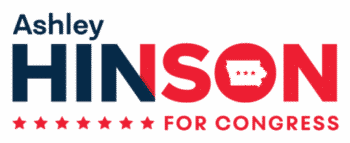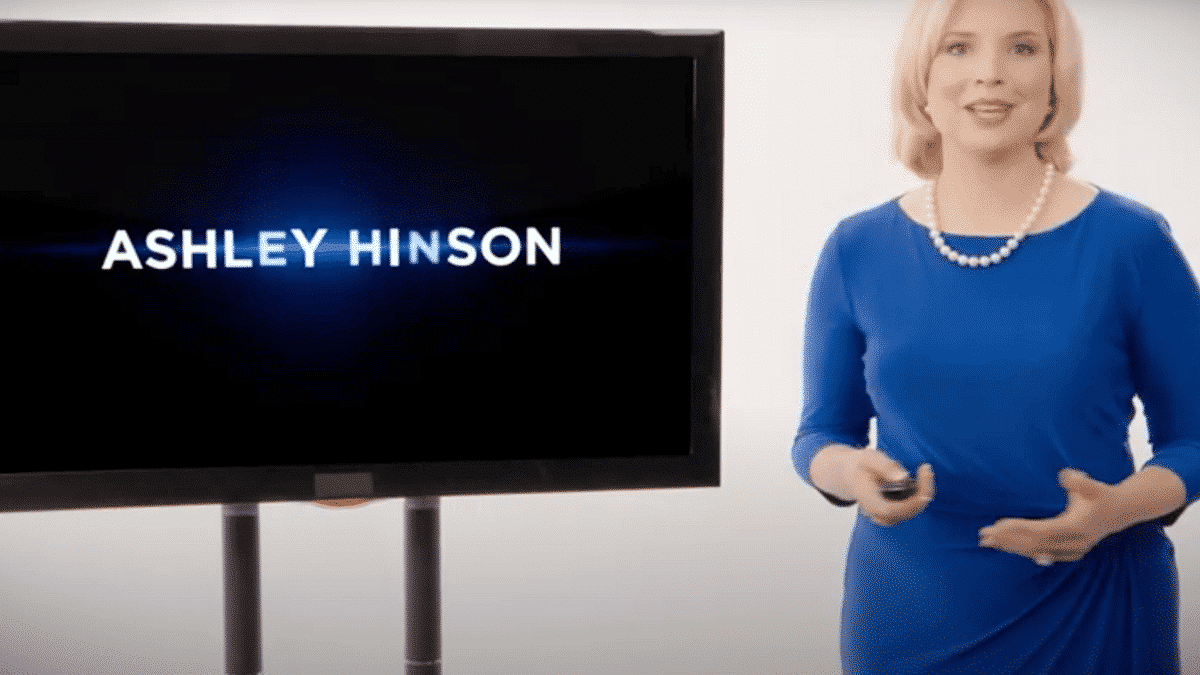Why the Ashley Hinson Plagiarism Case is Important
Another week, another political plagiarism story...

According to the original report, Hinson’s website plagiarized from a variety of sources including the Des Moines Register, The Hill, CNBC and even the New York Times itself. To make matters even worse, some of the language was nearly identical to her political opponent.
All of the pieces were removed after the New York Times pointed out the overlaps and, according to interviews and tweets that have followed, Hinson has put the blame on an unnamed consulting company that she was using.
According to her, an employee at that company did much of the background writing for her site and, though she approved the drafts, she was unaware of the plagiarism in the work. She has said that she has fired that consulting firm.
While this is certainly very believable, it leads into a remarkably simple question: Why? Before her political career, which began in 2016, Hinson worked as a journalist and was an anchor for KCRG-TV in Cedar Rapids, Iowa.
If any political candidate should have been aware of dangers of plagiarism and the potential for it, it should have been her.
However, the case is also an illustration of why political plagiarism matters. Not because ethical issues, but far more practical ones.
My Analysis of the Case

There seems to be no doubt that Hinson’s site contained plagiarized content. Hinson has admitted to much, the examples provided by the New York Times were more than convincing and the local media also agrees.
While it may not be the most egregious case of plagiarism, in one case involving 91 words out of a 642-word article, it’s clear patchwork plagiarism and a bad look for a political candidate.
Instead, the main point of contention is who is at fault. Hinson is placing the blame on an unnamed employee at an unnamed consulting company she was working with. She claims to have fired that company though it is impossible to verify.
To be clear, her story makes a great deal of sense. It is unreasonable to think that she wrote every word on her site and, it is almost certain that the bulk of it was written by either her staff or outside contractors. Her role, ultimately, was approving it.
However, as we’ve said before, while there is nothing unethical about letting others write for you when there is no audience expectation of originality (as is the case here), you are still responsible for those words.
Hinson, for her part, has only taken limited responsibility, saying that she approved a “draft” of the documents. Though she says she wants to take “ownership” of it and calls it “unacceptable” she doesn’t highlight what she will do differently in the future, other than dismissing the company involved. She goes on to call the allegations little more than a “partisan attack.”
The truth is that, as long as she continues to publish writing from her staff, it could happen again. Plagiarism isn’t a problem limited to one employee or one company. Without additional processes in place, it can happen again, even if the person responsible for the initial round has been terminated.
That, in turn, should worry all political candidates.
For Candidates, Plagiarism is a Systemic Issue
Political campaigns, both large and small, need to create a large amount of written content. They have websites to fill out, op eds to write and policy papers to publish. Whether you’re running for President or just for town council, it’s almost certain there will be a lot of writing to be done.
However, most candidates do not do the bulk of that writing. People involved with their campaign do most of the heavy lifting and that can include volunteers, paid staffers and contractors.
But if you’re letting others write in your name, part of the editing and approval process must include plagiarism detection. It’s a simple and inexpensive process that is only skipped because candidates fail to consider it.
We see this time and time again. Back in February, the Democratic Presidential candidate Mike Bloomberg campaign faced allegations of plagiarism. In April, Illinois Republican congressional candidate Jeanne Ives faced similar accusations. And now we have Hinson’s story.
While these stories may not change the balance of an election, they are all completely avoidable. Though plagiarism detection is far from perfect, it almost certainly would have caught all these cases and prevented plagiarism from ever being a story at all.
If you’re a candidate, you’d much rather stay focused on the narratives and issues that are important to you, not deflecting allegations of plagiarism. To ensure that’s the case, plagiarism needs to be something you think about before a work is published, not after.
It’s a situation where an ounce of prevention is worth more than a pound of cure, yet so few candidates seem to implement the tools that are available.
Bottom Line
When a political candidate, like Hinson, is accused of plagiarizing campaign-related material, it’s not a reflection on their ethics. They, most likely, did not write the material in question and were unaware of the plagiarism.
However, it is a reflection on how they run their campaign. Publishing content without performing due diligence is very worrisome. Plagiarism detection should be a part of the editing and approval process. If it’s not or the process is so lax that significant and repeated plagiarism slips through the cracks, it is worth noting.
While I understand that campaigns have a lot to think about and cover, plagiarism detection is easy to implement and inexpensive. There’s no reason it can’t be done other than it wasn’t thought of or deemed worth doing.
However, as cases like this show, it’s something that candidates should be aware of and it is definitely worth doing. Candidates are running out of excuses as to why they aren’t.
Want to Reuse or Republish this Content?
If you want to feature this article in your site, classroom or elsewhere, just let us know! We usually grant permission within 24 hours.
